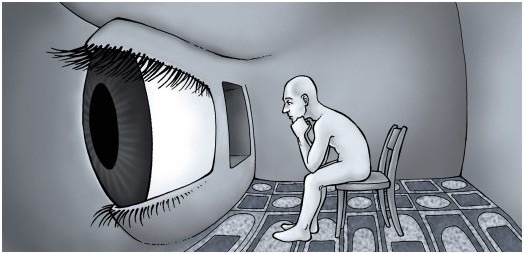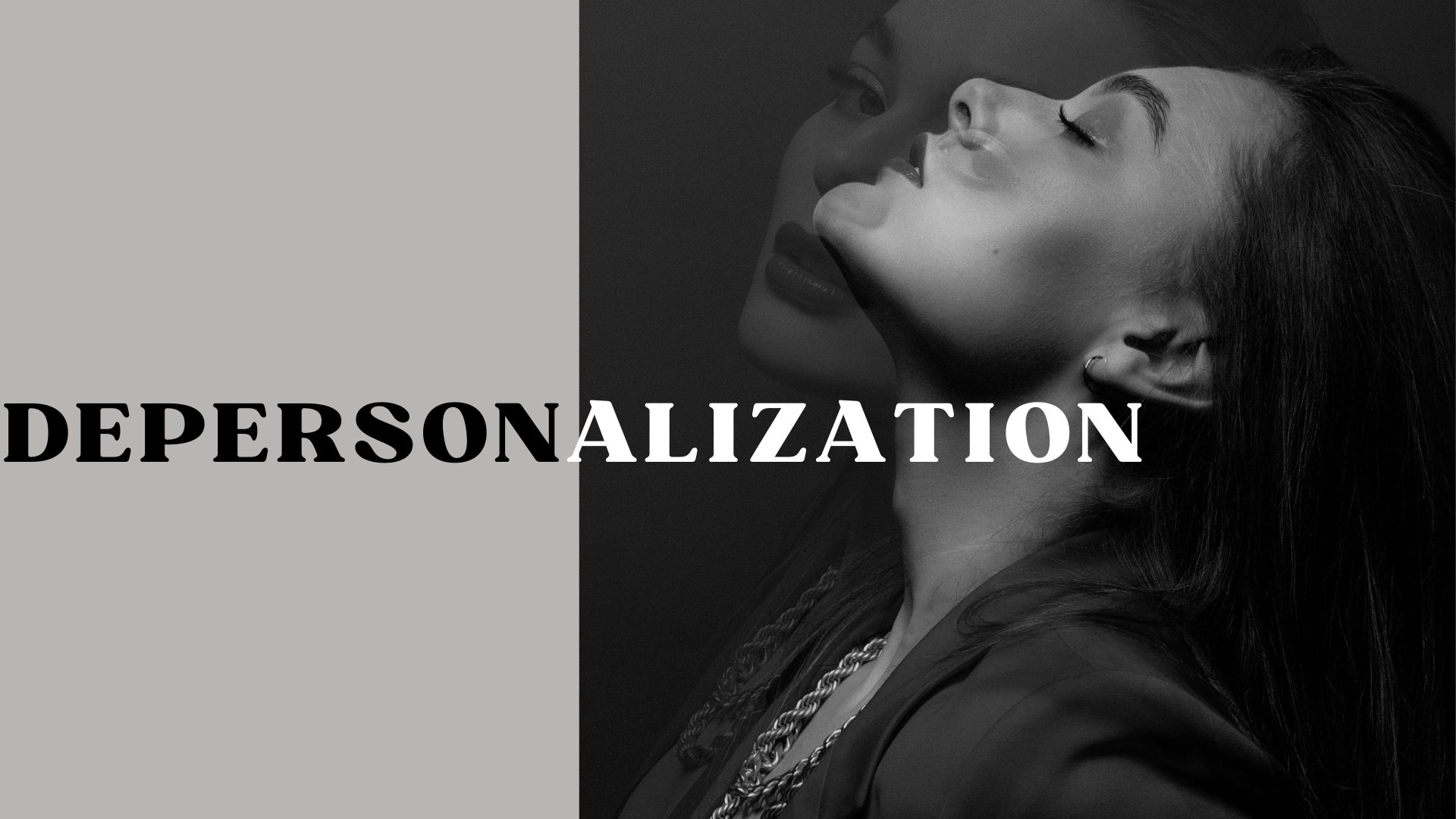Depersonalization: Experiencing The Unreal
Depersonalization: Experiencing The Unreal
Have you ever felt like watching your life from a snow-globe?
As if someone else is living the life and you are merely existing.
Or have you ever looked into the mirror and don’t recognize the person that the mirror illuminates?
It is like the whole world is moving but you are somewhere frozen and stagnant.
Or have you experienced difficulty in understanding what you are feeling?
Either you feel entirely numb or feel everything at once that it overwhelms you.
That is how “Depersonalization” feels like. It is a state where you feel “out of body” and marginalized from the real world. It feels like you are dreaming or living in a movie. As dreamy or cliche as it sounds, it can be frustrating to someone who is experiencing it. It is like you know that thoughts and feelings are passing through you, but you are unable to express them or understand where it is coming from.
Depersonalization is often the result of unprocessed or suppressed traumas, stress, conflicts, pain, etc. It makes one feel that their memories are not theirs, at times it even feels like a pseudo-memory. Depersonalization is a thin line that makes one grow irritated as they are not sure of what is real and what is not. It also makes many give up on their hope and motivation to strive through life and move with the flow as life goes on.

Causes of Depersonalization
Now let us dive a little deeper into the roots of Depersonalization. Various causes can trigger one to experience depersonalization. Below are some of the factors that contribute towards depersonalization.
1. Trauma.
When we experience trauma, especially during the early years of our life, we tend to unconsciously use depersonalization as a defence mechanism. Traumatic memories can be very distressing and to avoid experiencing the pain it gives, we may unconsciously depersonalize ourselves.
2. Accumulated Stress & Anxiety.
When we experience high levels of stress or anxiety without regulating it effectively, it tends to accumulate. When we exceed our threshold, it may lead to experiencing depersonalization as a coping that disconnects us from overwhelming emotions.
3. Mental Health Concerns.
Mental health conditions such as experiencing depression, PTSD, mood and anxiety disorders can lead one to feel detached from themselves and reality. Depersonalization can be one of the symptoms of these mental health concerns.
4. Substance Use.
Substances like hallucinogens and marijuana, often lead one to experience various side effects. Depersonalization is one of the side effects one may encounter. These individuals may live in their own bubble of dreams instead of being present.
How Therapy Comes to Aid?
Oftentimes, when one is going through depersonalization, everything around them may appear to be blurred. It could be as viewing their life from a small snow globe. Everything familiar may feel unfamiliar. Explaining how it exactly feels to loved ones may be frustrating as they themselves aren't sure of their experience. During these times, seeking therapy can be very beneficial. Below are a few ways therapy on how therapy benefits individuals experiencing depersonalization:
1. Exploring Root Cause.
With the assistance of a trained and certified therapist, one can gradually explore the root cause of their experiencing depersonalization and at the same time learn to identify and manage their triggers. Depersonalization often comes with an underlying issue such as trauma, painful memories, depression, etc. Identifying the root cause would help us to gradually work on the underlying issues with the therapist's assistance.
2. Emotional Regulation Skills.
Once one is able to identify their root cause and triggers, they can gradually learn to re-experience certain emotions and regulate certain emotions that may cause them distress in a healthier manner. A therapist would navigate one to face and regulate their emotions effectively, instead of suppressing them through unhealthy coping mechanisms.
3. Coping Strategies.
Oftentimes, we tend to cope with our issues through unhealthy coping such as binge eating, over-sleeping, overworking, substance use, entertainment, etc. These copings prevent us from facing the real issues and repress our emotions. Through therapy, one can learn practical and healthy coping skills that help them manage their episodes of depersonalization effectively.
4. Exposure Therapy.
When one is going through depersonalization episodes due to painful life experiences or traumas, through therapy, they can gradually confront and process their distressing memories along with the therapist. This gives them a sense of reassurance that they are not alone in this process and are in a safe environment to process those emotions and memories. Processing painful memories would help them to gradually release their pent-up emotions and would make those memories sting less.
5. Feeling Heard & Validated.
Depersonalization can be a very tough experience which makes one who experiences it to be short of words to express of it feels. Through therapy, one doesn't have to struggle to express themselves as the therapist can understand their experience. Therapy also gives them a safe and comfortable space to express their distress and other's experiences that they may fear to tell the outside world due to the possible judgements and invalidation. Therapy gives one a sense of being understood and heard for the depersonalization experience.
6. Grounding Techniques.
Therapy also equips one experiencing depersonalization with grounding and mindfulness tools that help them to bring themselves to the present during episodes of depersonalization by focusing on their physical senses. These tools include breathing techniques, mindfulness meditations, connecting with nature, five senses grounding, etc.
7. Self-Care.
Individuals going through depersonalization episodes often detach themselves from self-care or self-love as most of the time they are in a state of confusion over the experience they are going through. Through therapy, one would learn to start their self-care routine again with more small and achievable goals. These include having a balanced diet, exercising, taking breaks, resting when needed, etc.
Conclusion
In short, although depersonalization can be a challenging and uncomfortable experience to go through, with consistent efforts and adequate assistance from a mental health practitioner, one can gradually burst the bubble of depersonalization. With support, one can definitely start to reconnect with themselves and their emotions. Therapy would also help one to regain their sense of self and belonging and reduce the influence of depersonalization on their lives, leading towards healing and living a more fulfilling life.
If you know anyone who is experiencing depersonalization, offer your listening ears for them to express themselves. Sometimes all they need is a shoulder to lean on and be understood. Remember, seeking support is a sign of immense strength. It is never a weakness.

"Healing from depersonalization is finding a way back home to yourself."
If you enjoyed reading this, why not broaden the horizon of knowledge by learning about "Disenfranchised Grief"?
You can read the blog here.
For more content related to mental health do follow us on our official Instagram.

